39 refer to the diagram. at the profit-maximizing level of output, total revenue will be:
Old English will, willa "mind, determination, purpose; desire, wish, request; joy, delight," from Proto-Germanic *wiljon- (source also of Old Saxon willio, Old Norse vili, Old Frisian willa, Dutch wil, Old High German willio, German Wille, Gothic wilja "will"), related to *willan "to wish" (see will (v.1)). The meaning "written document expressing a person's wishes about disposition of property after death" is first recorded late 14c.
"whole amount, sum," 1550s, from total (adj.).
mid-14c., "tool to indicate a horizontal line," from Old French livel "a level" (13c.), ultimately from Latin libella "a balance, level" (also a monetary unit), diminutive of libra "balance, scale, unit of weight" (see Libra). Spanish nivel, Modern French niveau are from the same source but altered by dissimilation. Meaning "position as marked by a horizontal line" (as in sea-level) is from 1530s; meaning "flat surface" is from 1630s; meaning "level tract of land" is from 1620s. Figurative meaning in reference to social, moral, or intellectual condition is from c. 1600. Figurative phrase on the level "fair, honest" is from 1872; earlier it meant "moderate, without great ambition" (1790).
Refer to the diagram. at the profit-maximizing level of output, total revenue will be:
Determine profits and costs by comparing total revenue and total cost; Use marginal revenue and marginal costs to find the level of output that will ...
early 15c., "income from property or possessions," from Old French revenue "a return," noun use of fem. past participle of revenir "come back" (10c.), from Latin revenire "return, come back," from re- "back" (see re-) + venire "to come" (from a suffixed form of PIE root *gwa- "to go, come"). The meaning "public income, annual income of a government or state" is recorded from 1680s; revenue sharing was popularized from 1971, the Nixon Administration's policy of returning power to state and local governments by steering federal taxpayer money to them. Revenuer "U.S. Department of Revenue agent," the bane of Appalachian moonshiners, is attested by 1880.
"quantity of material put out or produced in a given time," 1839, from out- + put (v.). Until c. 1880, "a technical term in the iron and coal trade" [OED]; by 1884 as "energy produced by a device or system." The verb is attested from mid-14c., originally "to expel, exclude" (a sense now obsolete); meaning "to produce" is from 1858.
Refer to the diagram. at the profit-maximizing level of output, total revenue will be:.
14. Refer to Figure 7.4 for a perfectly competitive firm. At the profit-maximizing output, total revenues would be equal to:.
1716, "bring to a total," from total (n.). Intransitive sense "reach a total of" is from 1859. Meaning "to destroy one's car" first recorded 1954. Related: Totaled; totaling.
Refer to the above diagram. At the profit-maximizing output, the firm will realize: A. a loss equal to BCFG. B. a loss equal to ACFH. C. an economic profit ... Rating: 5 · 2 reviews
main page. Archives; Next; 16.12.2021 | kyze | 0 Comment
Answer to Solved a)Refer to the above diagram. At. ... At the profit-maximizing level of output, total revenue will be: A) NM times 0M. B) 0AJE. C) 0EGC.
mid-13c., "income derived from an office, property, transaction, etc.;" c. 1300, "benefit, spiritual benefit, advantage;" from Old French prufit, porfit "profit, gain" (mid-12c.), from Latin profectus "growth, advance, increase, success, progress," noun use of past participle of proficere "accomplish, make progress; be useful, do good; have success, profit," from pro "forward" (from PIE root *per- (1) "forward") + combining form of facere "to make, do" (from PIE root *dhe- "to set, put"). An Old English word "gain, profit" was gewinn. From mid-14c. as "use, usefulness." The specific sense of "the advantage or gain resulting to the owner of capita; from its employment in any undertaking, acquisition beyond expenditure" is from c. 1600. Profit margin "what remains when costs involved are deducted from profit" is attested from 1853. Profit-sharing is by 1881. As used in political economy, profit means what is left of the product of industry after deducting the wages, the price of raw materials, and the rent paid
... its profits, based on analysis of total revenue and total cost curves. ... is referred to as ... the profit-maximizing output level for the firm?15 pagesMissing: diagram. | Must include: diagram.
Changes in total costs and profit maximization — The firm produce extra output because the revenue of gaining is more than the cost to pay. So, total ...
Old English *willan, wyllan "to wish, desire; be willing; be used to; be about to" (past tense wolde), from Proto-Germanic *willjan (source also of Old Saxon willian, Old Norse vilja, Old Frisian willa, Dutch willen, Old High German wellan, German wollen, Gothic wiljan "to will, wish, desire," Gothic waljan "to choose"). The Germanic words are from PIE root *wel- (2) "to wish, will" (source also of Sanskrit vrnoti "chooses, prefers," varyah "to be chosen, eligible, excellent," varanam "choosing;" Avestan verenav- "to wish, will, choose;" Greek elpis "hope;" Latin volo, velle "to wish, will, desire;" Old Church Slavonic voljo, voliti "to will," veljo, veleti "to command;" Lithuanian velyti "to wish, favor," pa-velmi "I will," viliuos "I hope;" Welsh gwell "better"). Compare also Old English wel "well," literally "according to one's wish;" wela "well-being, riches." The use as a future auxiliary was already developing in Old English. The implication of intention or volition distinguishes it from shall, which ex
*This post has been split into a two-part series to work around Reddit’s per-post character limit. Please find Part 1 in the preceding post: Overviewing AMD’s GPU Architectures over here:* [https://www.reddit.com/r/hardware/comments/dr59gg/part\_1\_an\_overview\_of\_amds\_gpu\_architectures/](https://www.reddit.com/r/hardware/comments/dr59gg/part_1_an_overview_of_amds_gpu_architectures/) *Having overviewed AMD’s GPUs and gone over background and pre-requisite material, it’s time to delve into ...
Not sure if this is the place to post this (if not I'd really appreciate if someone could point me to the appropriate subreddit) but I'm a high school student studying IBDP economics HL. As part of the IB course we're supposed to write a 4000 word extended Essay in one of our subjects and I've chosen Economics.This essay is ideally supposed to be an exploration of either an application or extension of the concepts of the chosen subject *beyond* the syllabus. So what I'm essentially looking for...
late 14c., referren, "to trace back (a quality, etc., to a first cause or origin), attribute, assign," from Old French referer (14c.) and directly from Latin referre "to relate, refer," literally "to carry back," from re- "back" (see re-) + ferre "to carry, bear" (from PIE root *bher- (1) "to carry," also "to bear children"). The meaning "to commit to some authority for consideration and decision" is from mid-15c.; sense of "to direct (someone) to a book, etc." for information is from c. 1600. Related: Referred; referring.
At the profit-maximizing output, total revenue will be: ... Refer to the above diagrams, which pertain to a purely competitive firm producing output q.34 pages
A higher price would mean that total revenue would be higher for every ... (In the example above, the profit maximizing output level is between 70 and 80 ...
Old English beon, beom, bion "be, exist, come to be, become, happen," from Proto-Germanic *biju- "I am, I will be." This "b-root" is from PIE root *bheue- "to be, exist, grow," and in addition to the words in English it yielded German present first and second person singular (bin, bist, from Old High German bim "I am," bist "thou art"), Latin perfective tenses of esse (fui "I was," etc.), Old Church Slavonic byti "be," Greek phu- "become," Old Irish bi'u "I am," Lithuanian būti "to be," Russian byt' "to be," etc. The modern verb to be in its entirety represents the merger of two once-distinct verbs, the "b-root" represented by be and the am/was verb, which was itself a conglomerate. Roger Lass ("Old English") describes the verb as "a collection of semantically related paradigm fragments," while Weekley calls it "an accidental conglomeration from the different Old English dial[ect]s." It is the most irregular verb in Modern English and the most common. Collective in all Germanic languages, it has eight differe
38、All firms maximize profits by producing an output level where marginal revenue equals marginal cost; for firms operating in perfectly competitive industries, maximizing profits also means producing an output level where price equals marginal cost.
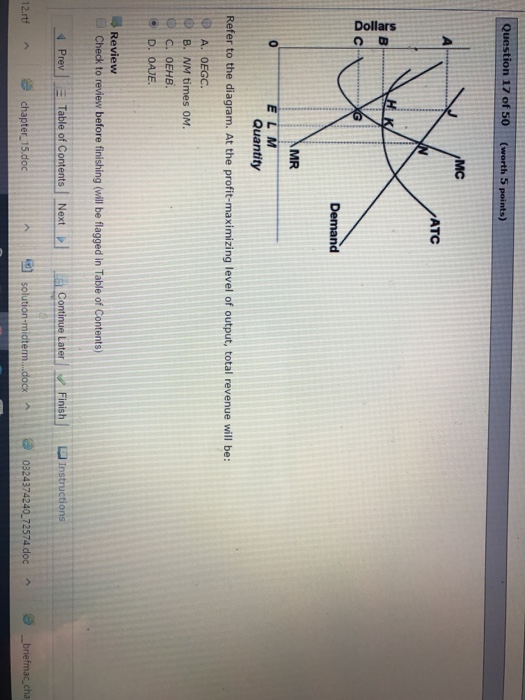






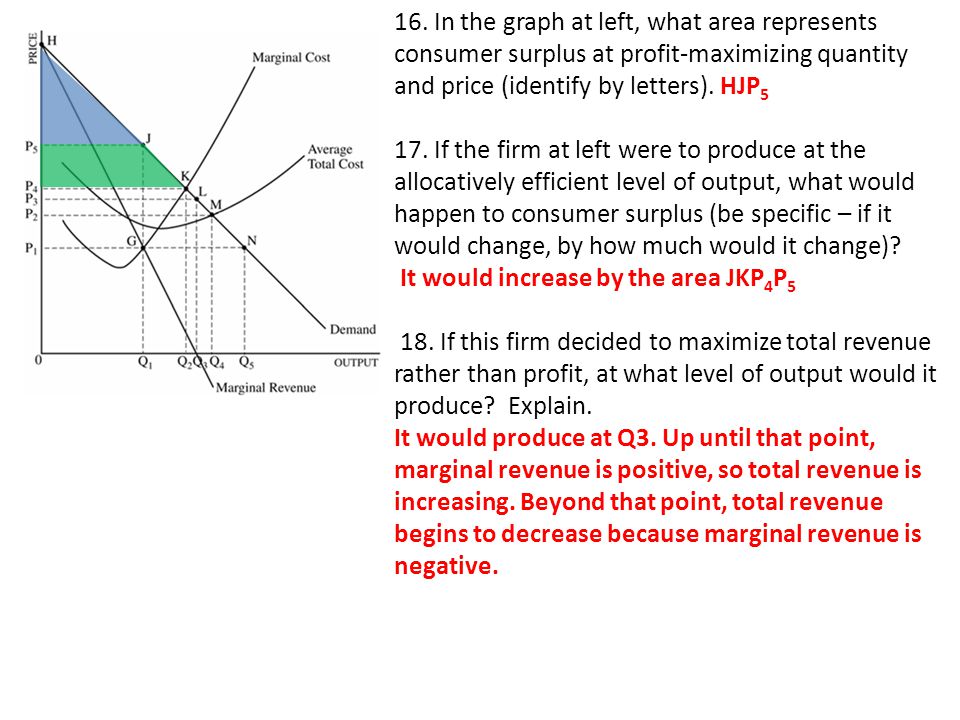
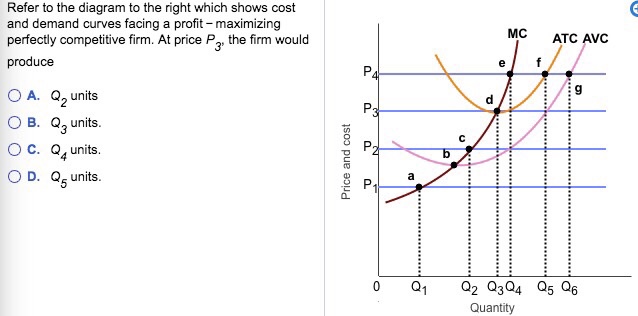
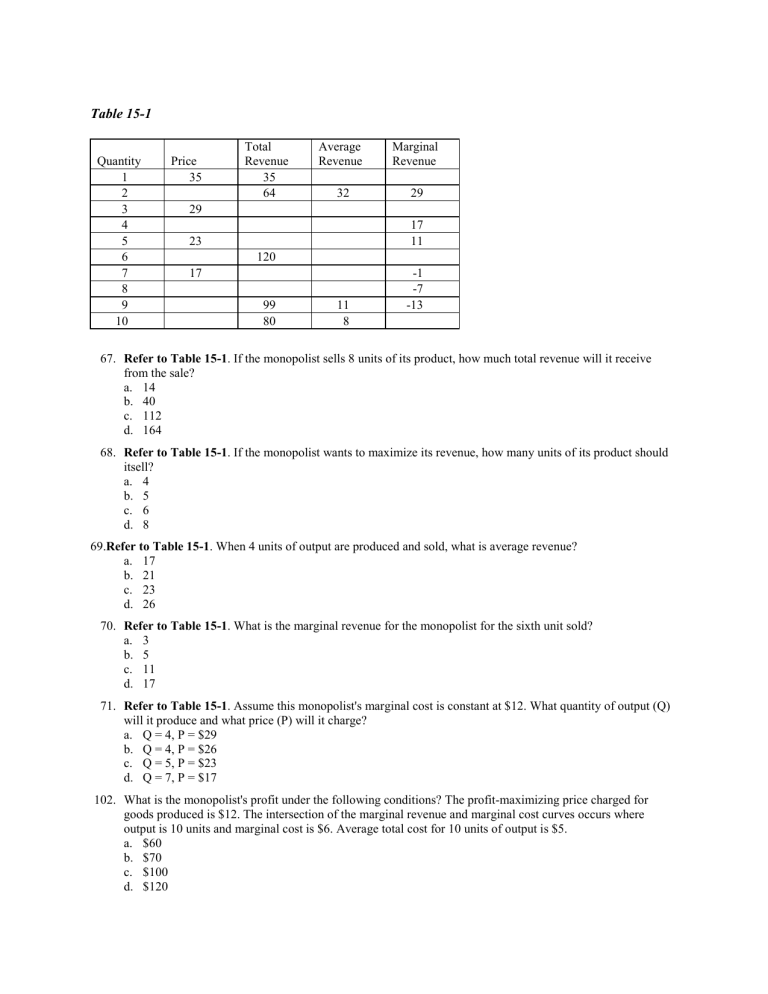
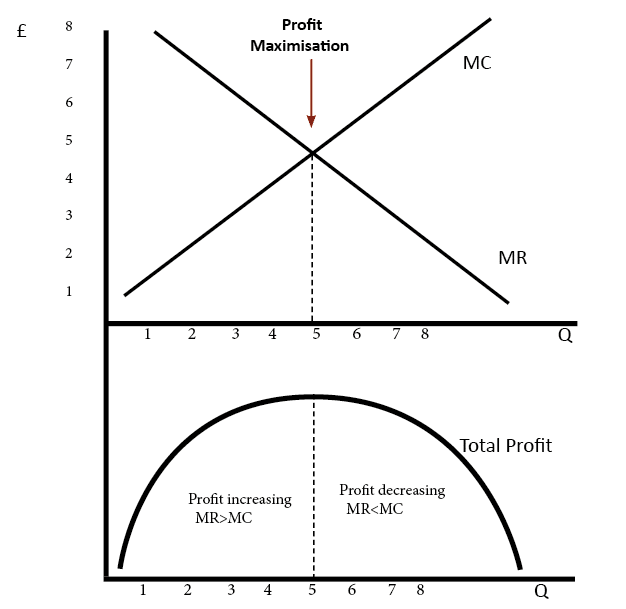

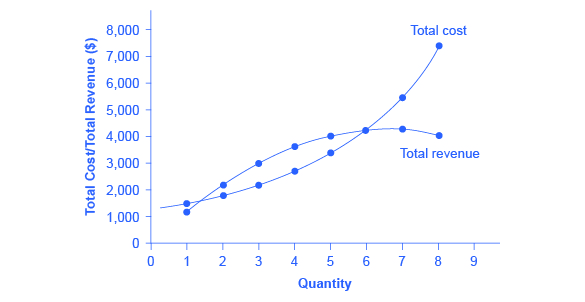
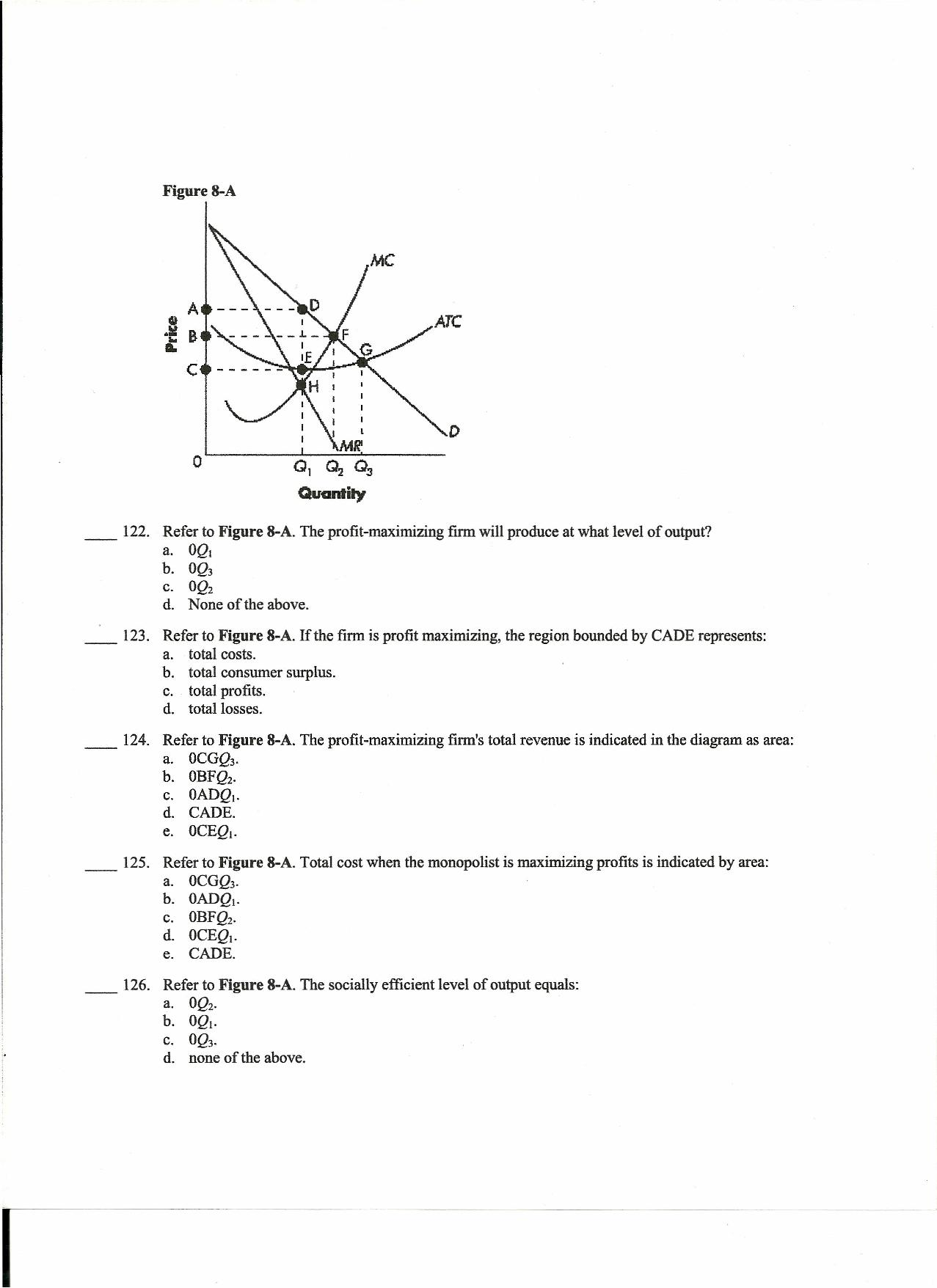

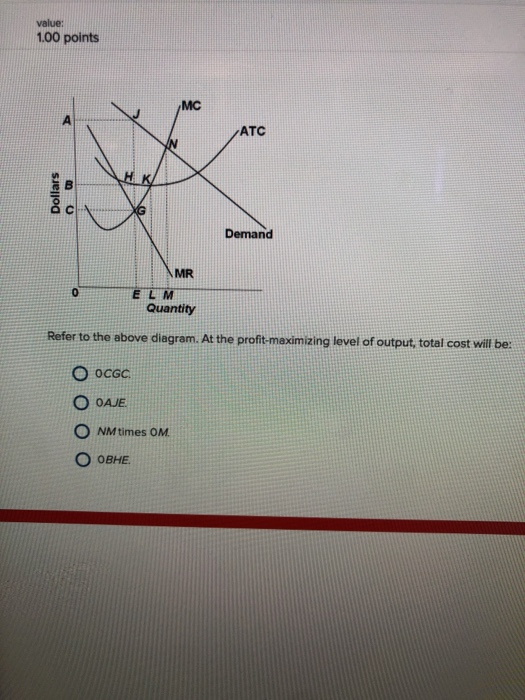

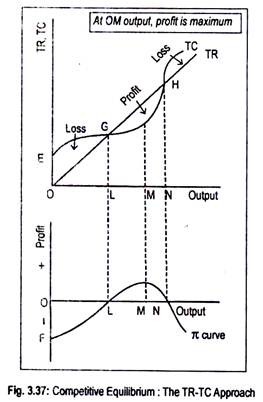
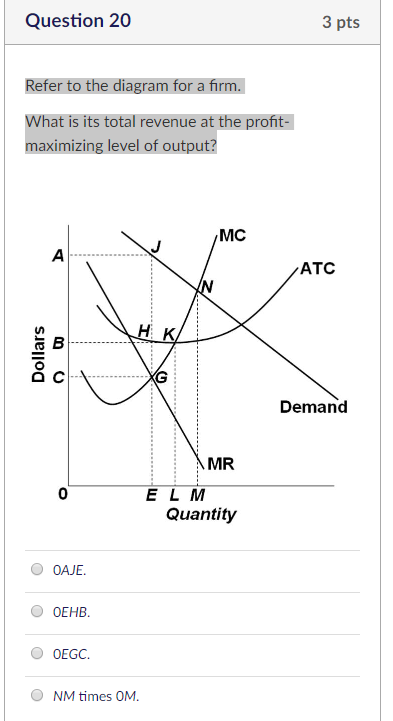

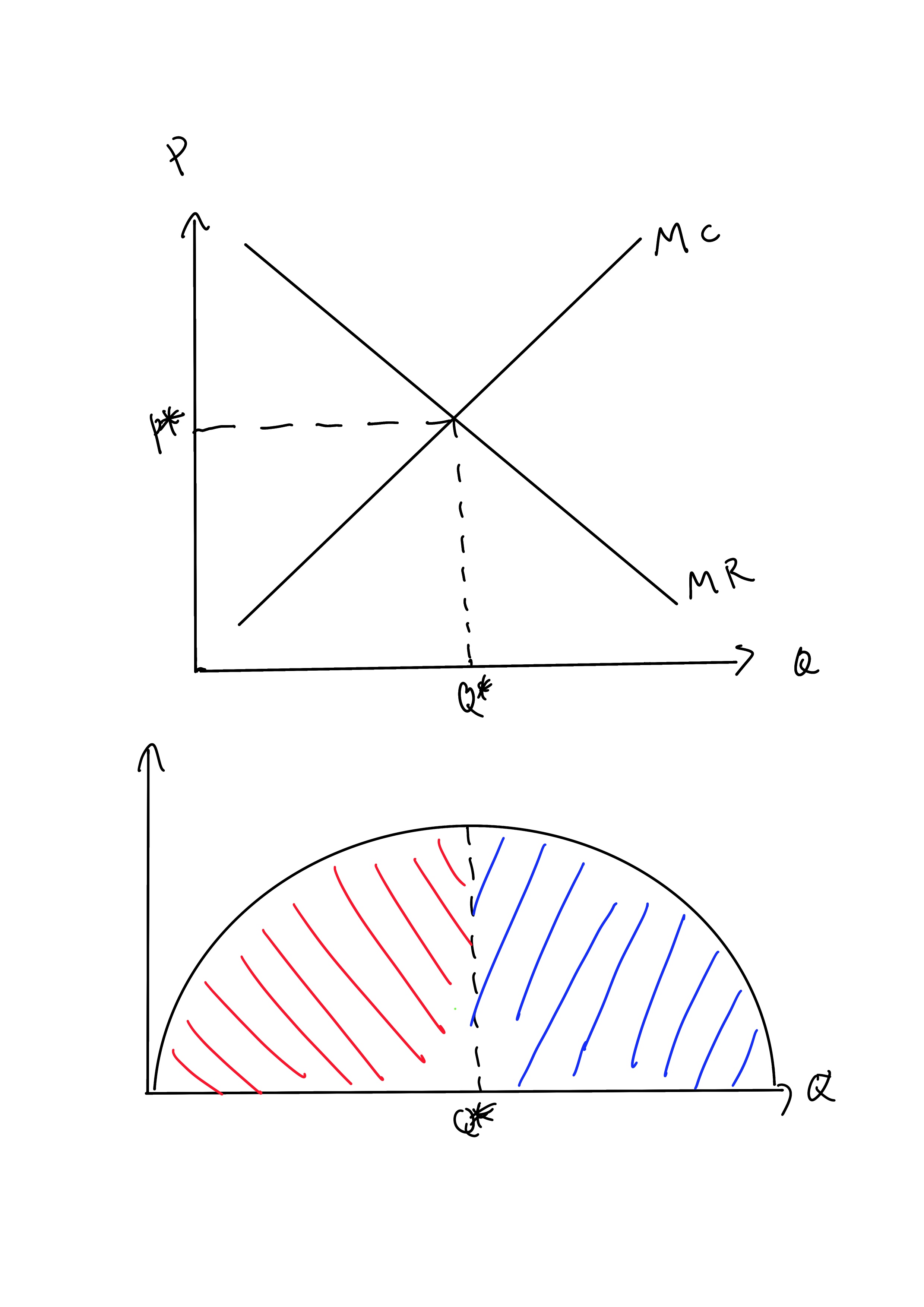
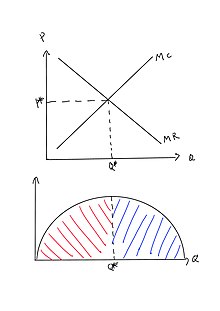
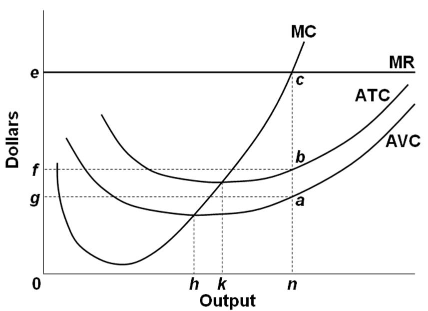
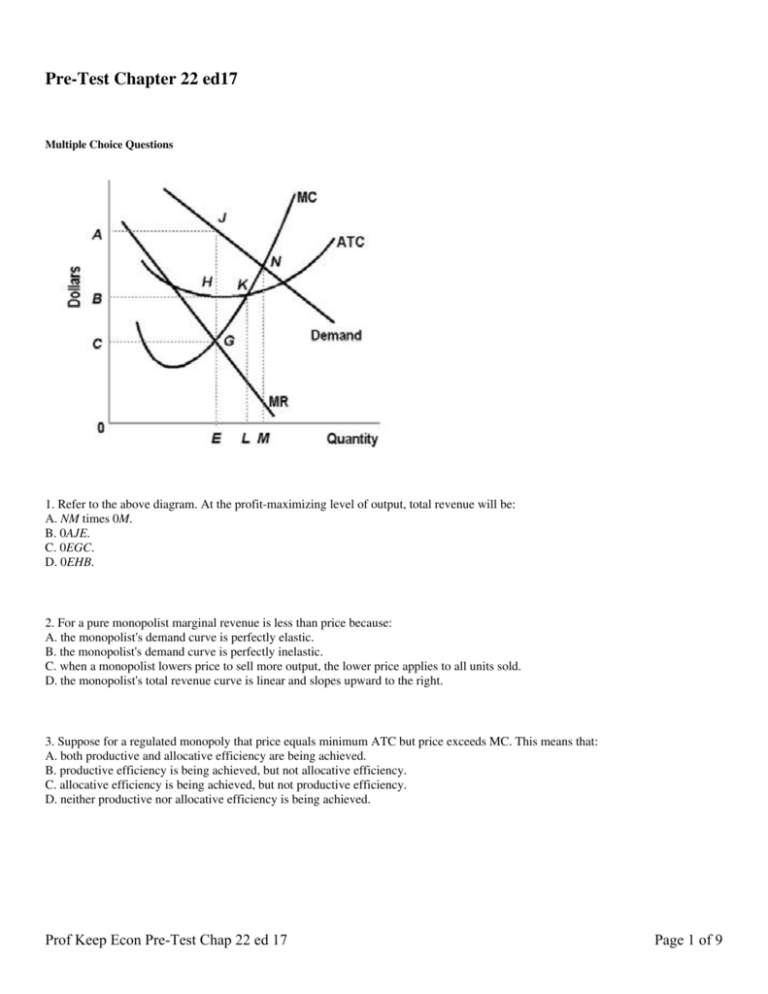


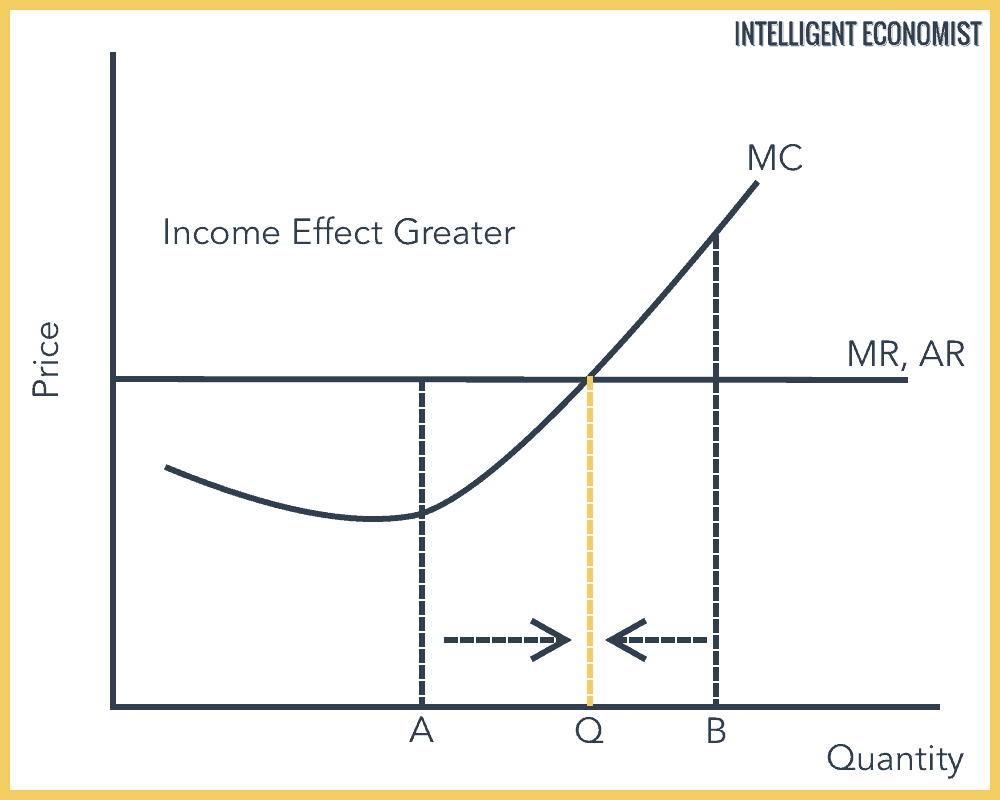

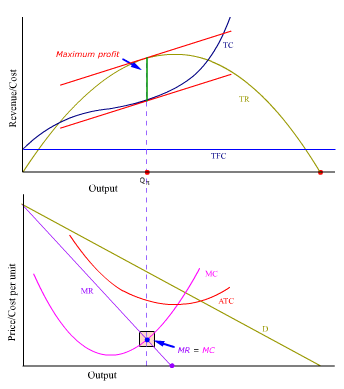


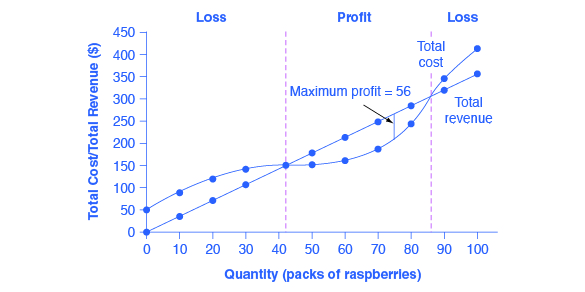
0 Response to "39 refer to the diagram. at the profit-maximizing level of output, total revenue will be:"
Post a Comment